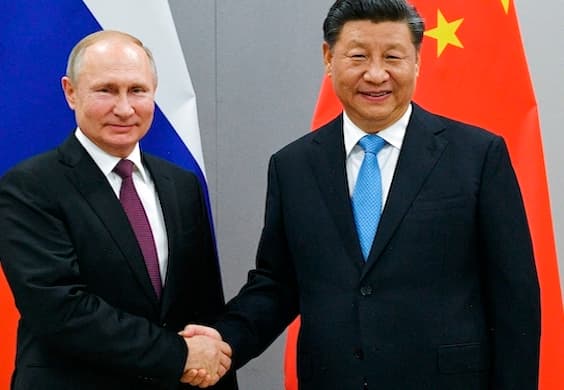Xi Has Upper Hand as Meeting With Putin Approaches
The Russian strongman’s Ukraine war is forcing him, at least temporarily, to lower his expectation of replacing America as global leader.

Chairman Xi to the rescue? With President Putin’s Ukraine war complicating Russia’s dreams of grandeur, the two America-averse leaders are due to meet in Kazakhstan next week.
Please check your email.
A verification code has been sent to
Didn't get a code? Click to resend.
To continue reading, please select:
Enter your email to read for FREE
Get 1 FREE article
Join the Sun for a PENNY A DAY
$0.01/day for 60 days
Cancel anytime
100% ad free experience
Unlimited article and commenting access
Full annual dues ($120) billed after 60 days

